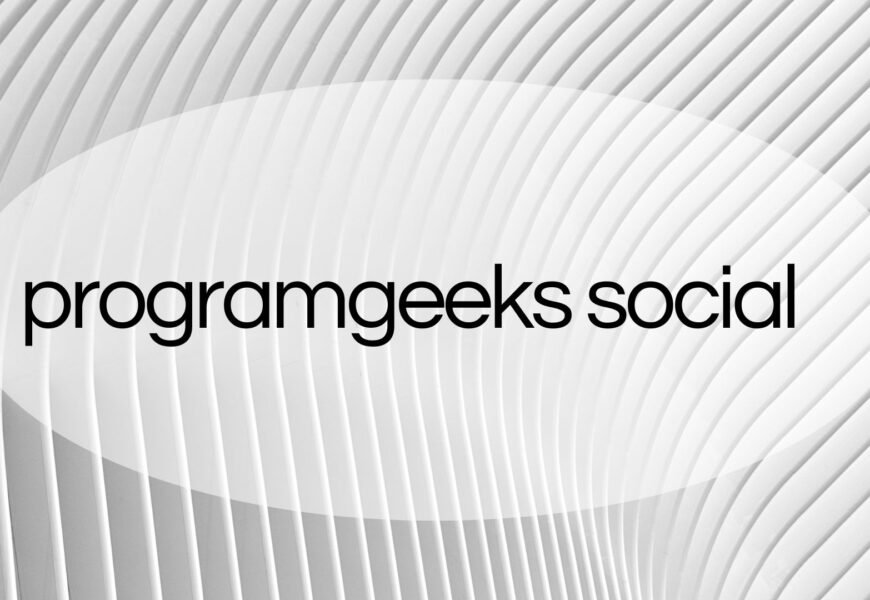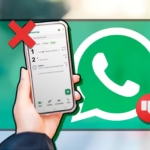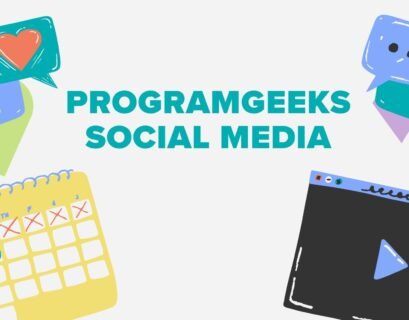In today’s hyper-connected world, developers crave more than code repositories and documentation—they want vibrant communities that spark creativity, foster camaraderie, and make learning fun. ProgramGeeks Social has tapped into the universal language of memes to achieve precisely that. By combining lighthearted humour with deep technical discourse, the platform has turned casual scrollers into active contributors, transforming memes from mere internet diversions into powerful engagement catalysts. This article unpacks how ProgramGeeks Social has leveraged memetic culture to build a thriving developer network, turning simple image macros and clever one-liners into drivers of collaboration, learning, and professional growth.
Table of Contents
The Rise of Meme-Driven Engagement in Developer Communities
Over the past decade, memes have evolved far beyond their origin as simple image-and-text jokes. In software circles, they’ve become shorthand for shared frustrations (debugging nightmares), insider references (variable naming wars), and triumph celebrations (“It works on my machine!”). Recognizing this trend, ProgramGeeks Social built its community strategy around memetic engagement: creating dedicated meme-sharing channels, encouraging meme-based tutorials, and rewarding top creators with reputation badges. This approach taps into developers’ desire for social belonging—laughter breaks down barriers, garners attention, and makes even the most intimidating topics feel approachable. By validating humour as a legitimate form of technical expression, ProgramGeeks Social has pioneered a space where learning and laughter go hand in hand.
Cultivating a Meme-Friendly Community Culture
Central to ProgramGeeks Social’s success is its emphasis on community guidelines that balance free expression and constructive discourse. New members are introduced to “Meme Etiquette”—a concise code of conduct encouraging respectful humour, relevant context, and clear attributions for derivative works. Moderators play an active role, spotlighting high-quality memes that teach coding principles or spark thoughtful discussions. Monthly “Meme Review” events invite seasoned members to critique, refine, and celebrate submissions, turning meme creation into a community sport. This structured yet supportive environment ensures that memes remain on-topic—illustrating best practices, warning against common pitfalls, or simply brightening someone’s day after hours of debugging.
Platform Features Empowering Memetic Interaction
ProgramGeeks Social isn’t simply a forum; it’s a purpose-built platform with features designed to elevate memes from static images to interactive learning tools:
- MemeBuilder™ Editor: An intuitive drag-and-drop interface lets users combine screenshots, code snippets, and captions. Integrated syntax highlighting ensures code in memes remains legible while resizing tools optimize images for desktop and mobile feeds.
- Contextual Tagging & Thread Linking: Memes can be tagged by language (e.g., Python, JavaScript), concept (e.g., recursion, asynchronous calls), or emotion (e.g., frustration, triumph). Clicking a tag surfaces related memes, discussions, and tutorials.
- Upvote & Remix Mechanics: Favorited memes earn upvotes, and top creators unlock “Remix Rights,” allowing others to adapt and improve upon original concepts. Each remix retains a link to the source, creating a transparent lineage of ideas.
- Live Reaction Overlays: During virtual hackathons and live coding sessions, real-time reactions (laugh emojis, facepalms, celebration GIFs) stream alongside video, reinforcing social bonds and elevating energy.
These integrated capabilities converge to make ProgramGeeks Social a dynamic playground where memes evolve, spread, and serve as stepping stones to deeper technical insight.
From Memes to Mastery: Learning Pathways Through Humor
While memes may seem frivolous initially, ProgramGeeks Social has systematically harnessed them for educational impact. The platform’s “Meme Curriculum” maps popular templates to learning objectives. For example, the “Distracted Boyfriend” format illustrates the dangers of tech debt when teams chase shiny frameworks over stable libraries. The “Drake Hotline Bling” meme contrasts bad error-handling practices with robust exception mechanisms. Each tutorial pairs the meme with a long-form article and interactive quiz, ensuring that humour anchors core concepts in memory. Community-generated “Meme Challenges” prompt members to create memes around advanced topics—like Kubernetes orchestration or machine learning hyperparameter tuning—deepening understanding through creative synthesis. In this way, ProgramGeeks Social turns fleeting laughter into durable mastery.

Measuring the Impact of Memetic Engagement
Data-driven insights underpin every aspect of ProgramGeeks Social’s memetic strategy. Key performance indicators include:
- Engagement Rate per Post: Meme-driven threads consistently outperform traditional text posts, with up to 40% higher comment rates and 25% longer dwell times.
- Knowledge Retention Scores: Participants in Meme Curriculum modules score an average of 15% higher on follow-up assessments than in standard tutorials.
- Mentorship Uptake: Junior developers who engage in meme channels are 30% more likely to join mentorship circles and submit code for peer review within the first month.
- Referral Growth: Memes that “go viral” within the platform often spill over to external social media, driving a 20% uplift in new sign-ups during meme-driven promotional weeks.
These metrics validate that laughter isn’t merely a social lubricant—it’s a learning accelerant and a powerful recruitment tool. By continually iterating on what resonates, ProgramGeeks Social refines its approach to amplify community cohesion and educational outcomes.
Fostering Professional Connections Through Shared Humor
Laughing together builds trust, and trust lays the foundation for professional collaboration. ProgramGeeks Social’s meme ethos extends into its networking features:
- Humour-Based Matchmaking: Developers can opt into “MemeAffinity” matchmaking, which pairs individuals based on shared meme preferences and technical interests, facilitating low-pressure introductions built on mutual laughter.
- Meme Portfolio Showcases: In addition to code repos and project demos, users curate “Meme Portfolios” that spotlight their most clever creations. These serve as conversation starters during interviews and hackathon team formations.
- Employer Meme Workshops: Forward-thinking companies host branded meme workshops and competitions, offering cash prizes or swag for memes that creatively illustrate their tech stacks or corporate values. This indirect branding approach attracts top talent and humanizes corporate recruitment.
- Alumni Meme Reunions: Cohorts from coding boot camps and university clubs reunite in private meme channels, commemorating shared experiences and sparking reignited collaborations on side projects.
By weaving humour into every networking touchpoint, ProgramGeeks Social removes the awkwardness of cold outreach and makes professional interactions feel organic and engaging.
Navigating Challenges and Ensuring Inclusivity
Harnessing humour at scale is not without challenges. The platform confronts potential pitfalls—such as in-jokes becoming exclusive or humour inadvertently alienating certain groups—through proactive measures:
- Diversity & Sensitivity Training for Moderators: Ensuring meme content respects cultural, gender, and accessibility considerations.
- Inclusive Template Libraries: Featuring diverse avatars, code examples, and scenarios that reflect a broad spectrum of developers, from beginners to veterans.
- Opt-Out Options: Users who prefer a more technical feed can turn off meme channels, curate custom dashboards, or adjust content settings to prioritize tutorials and discussion threads.
- Feedback Loops: Regular surveys and “Meme Focus Groups” solicit direct input on what works and doesn’t, allowing the community to shape evolving guidelines.
ProgramGeeks Social safeguards its culture through these practices, ensuring that memes remain sources of connection rather than division.

The Road Ahead: Scaling Memetic Mastery
Looking to the future, ProgramGeeks Social is exploring advanced AI-driven meme generation—where machine learning models suggest personalized meme templates based on individual learning gaps and humour profiles. Integration with augmented reality (AR) could allow developers to overlay code-related jokes into physical workspaces, blending the digital and real-world environments. Additionally, partnerships with educational institutions could formalize meme-based pedagogy, granting micro-credentials for mastery of key concepts. As remote and hybrid work become entrenched, memetic engagement will be a cornerstone of maintaining vibrant team dynamics and fostering continuous learning.
Frequently Asked Questions
1. What is the “Meme Curriculum” on ProgramGeeks Social?
The Meme Curriculum is a structured learning program that pairs popular meme templates with technical tutorials. Each module uses humour to introduce or reinforce concepts—like error handling or dependency management—and includes quizzes to assess knowledge retention.
2. How can I contribute memes to the platform?
Anyone with a free ProgramGeeks Social account can use the built-in MemeBuilder™ Editor to create and submit memes. High-quality submissions earn upvotes, reputation badges, and “Remix Rights” for collaborative improvements.
3. Are memes on the platform moderated?
Yes. A combination of AI filters and community moderators review meme content for relevance, quality, and adherence to the platform’s “Meme Etiquette” guidelines. Users can flag inappropriate or off-topic memes for prompt review.
4. Can I network with other developers through memes?
Absolutely. ProgramGeeks Social offers “MemeAffinity” matchmaking to connect users with similar humour styles and technical interests. Meme portfolios also serve as creative conversation starters in private messages and group chats.
5. Is ProgramGeeks Social suitable for beginners who aren’t meme-savvy?
Yes. Beginners can opt into or out of meme channels via personalized content settings. The platform’s inclusive template library features step-by-step guidance, making meme creation accessible even to those new to coding or internet humour.
















